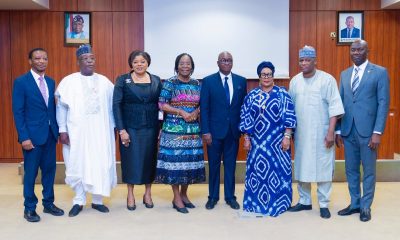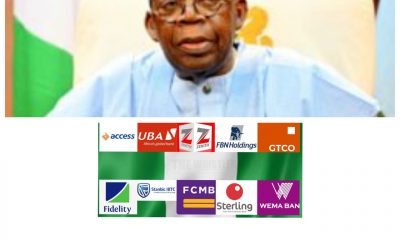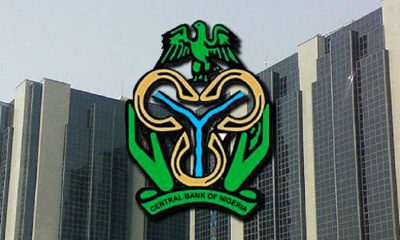General
SERAP Files Suit Against CBN Over KYC Social Media Policy
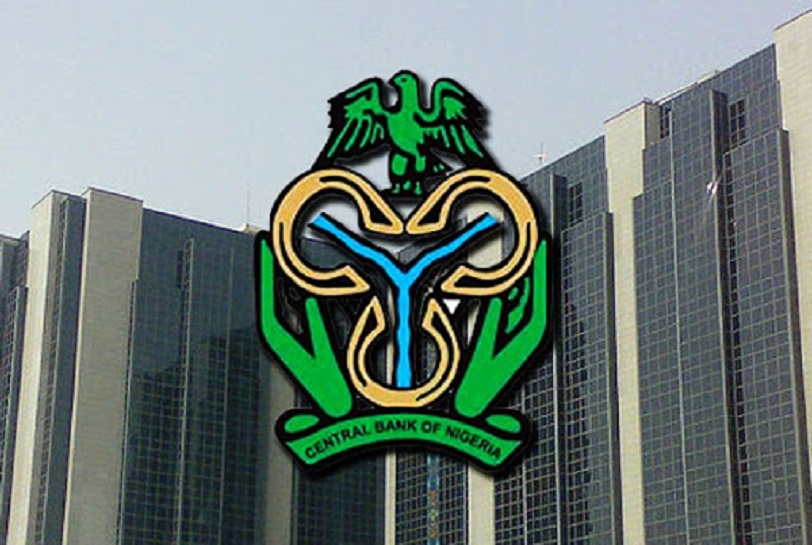
By Adedapo Adesanya
Socio-Economic Rights and Accountability Project (SERAP) has filed a lawsuit against the Central Bank of Nigeria (CBN) over its proposed Know-Your-Customer (KYC) social media policy.
The suit filed on behalf of SERAP by its lawyers, Mr Kolawole Oluwadare and Ms Blessing Ogwuche, said “the failure to delete the patently unlawful provisions in the Central Bank of Nigeria (Customer Due Diligence) Regulations directing banks to obtain information on customers’ social media handles for the purpose of identification.”
The CBN had last month issued a circular mandating banks and other financial institutions to implement and comply with the mandatory provisions on customers’ social media handles in the CBN Regulations. This raised a late of complaints from Nigerians as well as government agencies.
In the suit number FHC/L/CS/1410/2023 filed last Friday at the Federal High Court in Lagos, SERAP is seeking: “an order of mandamus to direct and compel the Central Bank of Nigeria to withdraw its directive dated 20th June 2023 to banks and other financial institutions to obtain information from customers’ social media handles.”
SERAP, through the suit, is also seeking: “an order of mandamus to compel the CBN to delete the unlawful provisions of Section 6 of its Customer Due Diligence Regulations, 2023 for being inconsistent with Section 39 of the Nigerian Constitution 1999 [as amended] and Article 9 of the African Charter on Human and Peoples’ Rights.”
SERAP is also seeking: “an order restraining the CBN from carrying out or giving effect to the unlawful provisions of Section 6 of its Customer Due Diligence Regulations, 2023, directing banks and other financial institutions to obtain information from customers’ social media handles.”
In the suit, SERAP is arguing that: “The mandatory requirement of social media handles or addresses of customers does not serve any legitimate aim. Such information may be used to unjustifiably or arbitrarily restrict the rights to freedom of expression and privacy.”
SERAP is also arguing that, “Unless the reliefs sought are granted, the CBN will implement and enforce the unlawful directive in contravention of citizens’ rights to freedom of expression and privacy.”
According to SERAP, “There are other means of identification such as passport, driver’s licence, Bank Verification Number (BVN), and Tax Identification Number (TIN), which banks and other financial institutions already require their customers to provide.”
SERAP is also arguing that, “The additional requirement of obtaining details of a customer’s social media handle or address fails to meet the requirements of legality, necessity, and proportionality.”
The group further argued that, “The fact that there are sufficient means of identification for CBN, banks and other financial institutions to rely on to meet the requirement of Know Your Customer also heighten concerns of overreach, and confer far-reaching discretion on banks and financial institutions.”
“Obtaining information on customers’ social media handles or addresses as means of identification is more intrusive than necessary.”
“According to Section 6(a)(iv) of the CBN Regulations, banks and other financial institutions ‘shall identify their customer and obtain information on the social media handle of the customer.’ Section 6(b)(iii) contains similar provision.
“The purported mandatory requirement would inhibit Nigerians from freely exercising their human rights online. If obtained, such information may also be misused for political and other unlawful purposes.
“The CBN Regulations and directive to banks and other financial institutions would impermissibly restrict the constitutional and international rights to freedom of expression, privacy and victims’ right to justice and effective remedies.
“Requiring social media handles or addresses of customers as a means of identification would have a disproportionate chilling effect on the effective enjoyment by Nigerians of their rights to freedom of expression and privacy online.
“The requirement of necessity implies an assessment of the proportionality of the grounds, with the aim of ensuring that the excuse of ‘regulations on customer due diligence’ is not used as a pretext to unduly intrude upon the rights to freedom of expression and privacy.
“The CBN Regulation does not demonstrate how the use of social media handle or address as a means of identification would serve to improve banks and other financial institutions’ ability to implement and comply with the laws and regulations relating to customer due diligence.
“The Directive by the CBN, which does not in any event carry the force of law, also fails to provide any explanation as to how social media handles or addresses can facilitate compliance with regulations relating to customer due diligence.
“Obtaining the details of customers’ social media handles or addresses would unduly interfere with the rights to freedom of expression and privacy. It would also be disproportionate to any purported legitimate aim that the CBN seeks to achieve.
“The cumulative effect of any attempt to access details of customers’ social media handles or addresses would be to undermine the letter, substance and spirit of the rights to freedom of expression and privacy of Nigerians.
“The effective enjoyment of these fundamental rights constitutes a fundamental pillar for building a democratic society and strengthening democracy.
“The positive obligations of Nigeria to ensure the rights to freedom of expression and privacy will only be fully discharged if individuals are protected against violations by institutions like the CBN.
“The Nigerian Constitution guarantees in Section 39 the right to freedom of expression and in Section 37, the right to privacy.
“Article 19 of the International Covenant on Civil and Political Rights and Article 9 of the African Charter on Human and Peoples’ Rights also guarantee the right to freedom of expression. Article 17 of the Covenant also guarantees the right to privacy.
“In particular, Article 19(1) of the Covenant establishes the right to freedom of opinion without interference. Article 19(2) establishes Nigeria’s obligations to respect and ensure ‘the right to freedom of expression,’ which includes the freedom to seek, receive and impart information and ideas of all kinds, regardless of frontiers.
“Under article 19(3), restrictions on the right to freedom of expression must be ‘provided by law’, and necessary ‘for respect of the rights or reputations of others’ or ‘for the protection of national security or of public order (ordre public), or of public health and morals.
“The principles of legality, necessity, and proportionality apply to the right to privacy in the same manner as they do to freedom of expression and other fundamental freedoms.
“Restrictions to the rights to freedom of expression and privacy that do not comply with the elements of legality, legitimate purpose, and necessity and proportionality shall be deemed unlawful,” it read in part.
No date has been fixed for the hearing of the suit.
General
Violence Mars APC Ward Congress in Oluyole
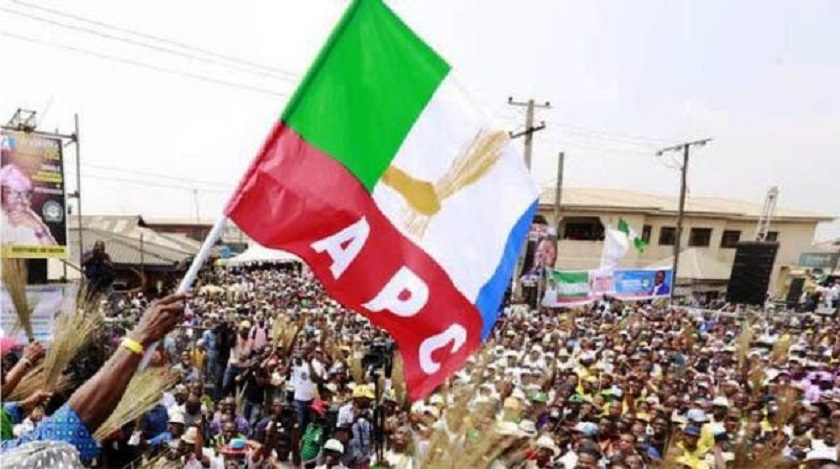
By Modupe Gbadeyanka
The ward congress of the All Progressives Congress (APC) in Oluyole Local Government Area of Oyo State on Saturday left several party members injured after a violence clash erupted.
According to reports, one of the injured persons was Mr Idowu Oyawale, who served as the campaign Director General of a House of Representatives member in the last general elections, Ms Tolulope Akande-Sadipe.
It was disclosed that he sustained severe injuries during the exercise and is currently receiving treatment at an undisclosed hospital.
The ward congress was organised by the ruling party to elect ward executives across the local government’s wards.
However, it was disrupted at Olomi Ward 7 by suspected heavily-armed political thugs allegedly linked to a member of the party.
It was claimed that the thugs invaded the congress venue at Olomi Basic School 1, dispersing party members and officials supervising the exercise, with stones, clubs and other weapons.
Eyewitnesses said tensions escalated unprovoked over delegates’ lists and ward executive positions. The disagreement reportedly degenerated into physical altercations before the violent attacks on some party members.
It was learnt that security operatives led a tactical team to restore order, peace, and disperse the attackers.
Reacting to the incident, some party leaders and elders condemned the violence, describing it as unfortunate and capable of undermining the credibility of the internal democratic process.
The leaders have called on party chieftains and President Bola Tinubu to immediately order an investigation into the violent attacks.
General
A Call For United African Front on Slavery and Reparations
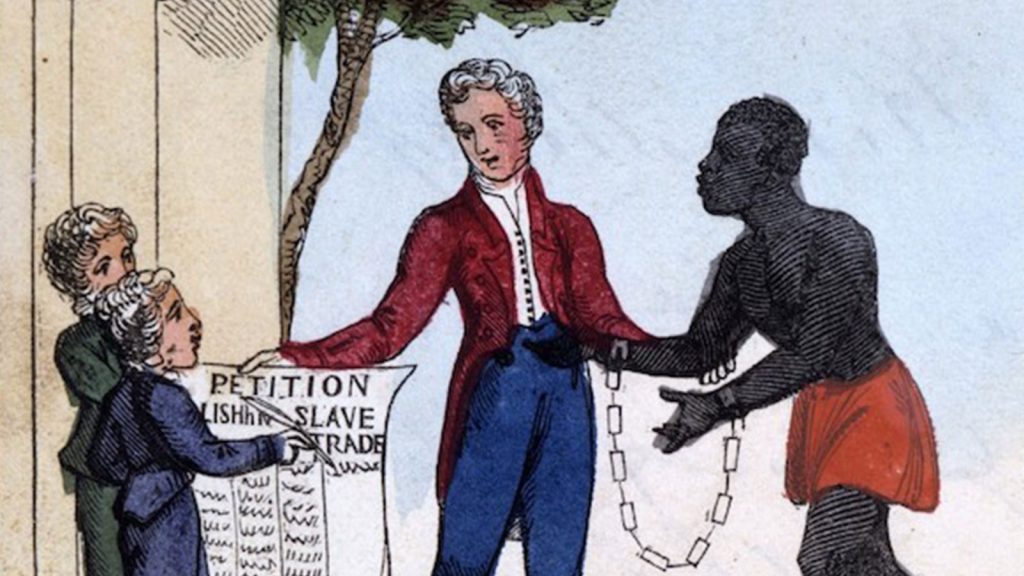
By Princess Yanney
One message stood out; one particular briefing gave clarity and hope for better days ahead. Africa will be heard; willingly or unwillingly, and the resolution thereof will no longer be a hope for years to come, but a reality to actualise. At a press conference during the 39th AU Summit in Addis Ababa, Ghana’s President John Dramani Mahama urged African leaders to adopt a common continental strategy on the legacy of slavery and racialised chattel enslavement, which he described as “the gravest crime against humanity.”
In this context, one must understand; Reparations matter because colonialism was not simply an episode of foreign rule. It was an economic system. African land was seized, labour was coerced, institutions were reshaped to serve external interests, and entire economies were redesigned around the export of raw materials.
Long before independence, the transatlantic slave trade had already stripped the continent of people, skills and social stability, creating permanent demographic and developmental damage. Colonial rule then consolidated this destruction into a durable global structure of inequality.
President Mahama explained that Ghana’s proposed AU resolution, which received broad support from member states, was carefully drafted with extensive consultations involving the AU Committee of Experts on Reparations, legal experts, academic institutions and diaspora organisations. He said the resolution’s wording was deliberately chosen to reflect historical accuracy, legal credibility, and moral clarity.
“Ghana has undertaken extensive consultations to strengthen the resolution. We’ve engaged with UNESCO, the Global Group of Experts on Reparations, the Pan-African Lawyers Union, academic institutions, the African Union Committee of Experts on Reparations and the African Union Legal Experts Reference Group. We hosted the inaugural joint meeting of the African Union Committee of Experts on Reparations and the African Union Legal Experts Reference Group in Accra earlier this month to further refine the text of the resolution. We also began engagement with the diaspora at the Ghana Diaspora Summit held in December last year.”
Hence, come March 25, the resolution will be presented by one man, who will echo the voice of millions of African people and people of African descent. Because truly, a united Africa demanding reparations is not an Africa asking to be included in an unequal system, but rather, an Africa asserting its right to help redesign it. President Mahama stressed that the initiative goes beyond symbolism, providing a legal and moral foundation for reparatory justice and sustained engagement with the global community. The resolution is designed to facilitate dialogue with the United Nations and international partners while affirming Africa’s demand for recognition and accountability for centuries of exploitation and injustice.
“Informal consultations on the draft text are expected to take place between 23rd February and 12th March 2026. Our objective is simple: to build a broad consensus behind this resolution. The initiative is not directed at any nation; it is directed towards truth, recognition and reconciliation.”
He reiterated. Truth is, a united Africa is a strong global force that cannot be stopped or interrupted. But a divided Africa is an Africa liable to imperialism and Western domination. It is therefore a priority for all African people to join hands and stand together to ensure the aims of these resolutions are achieved.
“We call upon all member states to support and co-sponsor this resolution. The adoption of this resolution will not erase history, but it will acknowledge it. The trafficking in enslaved Africans and racialised chattel enslavement were foundational crimes that have shaped the modern world, and their consequences continue to manifest in structural inequality, racial discrimination and economic disparity.
Recognition is not about division; it is about moral courage. Adoption of the resolution will not be the end. Following the adoption, Ghana will continue engagement with the United Nations Secretary General, the African Union Commission, relevant UN bodies and interested member states,” said John Dramani Mahama as he called for unity.
The importance of today’s reparations consensus lies in its recognition that Africa’s underdevelopment is not an internal failure to be corrected through aid, reforms or external advice. It is the historical and continuing outcome of dispossession. Reparations, therefore, respond to a concrete injury, not an abstract moral wrong. Again, Reparations matter because colonialism was not simply an episode of foreign rule. It was an economic system. African land was seized, labour was coerced, institutions were reshaped to serve external interests, and entire economies were redesigned around the export of raw materials.
Long before independence, the transatlantic slave trade had already stripped the continent of people, skills and social stability, creating permanent demographic and developmental damage. Colonial rule then consolidated this destruction into a durable global structure of inequality. Which is why today’s fight, today’s struggle, is of utmost importance. It is a correction of a historical inhumane error. One that has to be amended and corrected, beginning with recognition.
“This is about a sustained dialogue on reparatory justice and healing. Distinguished ladies and gentlemen, this initiative presents us with a historic opportunity, an opportunity to affirm the truth of our history, an opportunity to recognise the gravest injustice in human history, and an opportunity to lay a stronger foundation for genuine reconciliation and equality. While the past cannot be undone, it can be acknowledged, and acknowledgement is the first step towards justice.” – John Dramani Mahama expressed to the media and all who were gathered to witness the briefing under the theme, “Ancestral Debt, Modern Justice: Africa’s United Case For Reparations”.
General
APC’s Maikalangu Wins Abuja Municipal Area Council Election
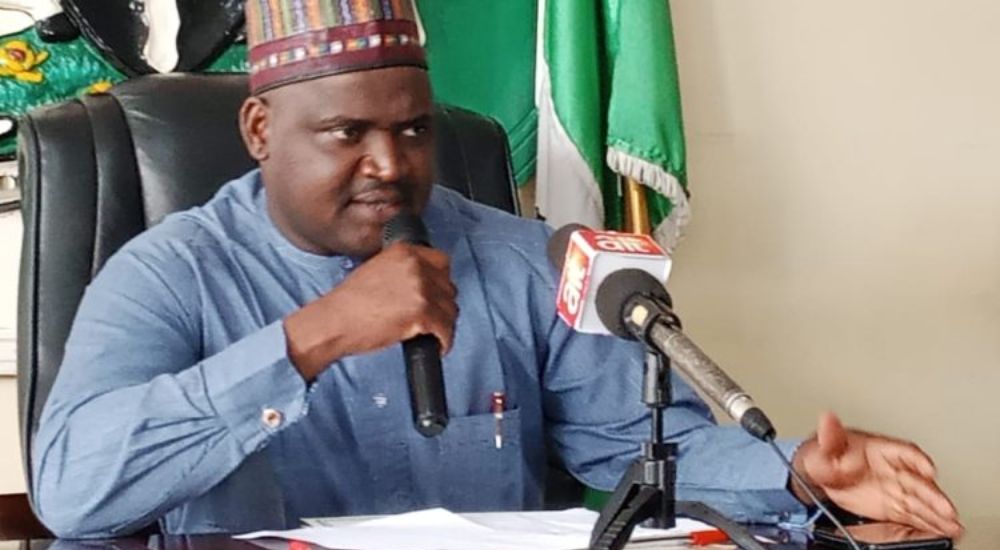
By Adedapo Adesanya
The Independent National Electoral Commission (INEC) has announced the candidate of the All Progressives Congress (APC), Mr Christopher Maikalangu, as the winner of the Abuja Municipal Area Council (AMAC) election, held on Saturday.
The results for the keenly observed municipal chairmanship poll were announced at the INEC area office in Karu at about 4:30 a.m on Sunday.
The Collation Officer for AMAC, Mr Andrew Abue, said that Mr Maikalangu, who is the incumbent AMAC chairman, was returned elected, having scored the highest number of votes cast, 40,295 out of the total number of valid votes of 62,861 in the election.
“That Maikalangu of the APC, having certified the requirements of the law, is hereby declared the winner and is returned elected,” he declared.
Mr Abue stated that the African Democratic Congress (ADC) came second with 12,109 votes, while the Peoples Democratic Party (PDP) polled 3,398 votes.
According to him, a professor, the rejected votes were 2,336, and the total valid votes were 62,861, while the total votes cast were 65,197.
He added that the number of registered voters in AMAC was 837,338, while the total number of accredited voters was 65,676.
According to him, the scores of the political parties and their candidates that contested the AMAC chairmanship election are:
Agbon Vaniah of the Accord (A) – 403 votes
Nemiebika Tamunomiesam of the Action Alliance (AA) – 108 votes
Paul Ogidi of African Democratic Congress (ADC) – 12,109 votes
Richard Elizabeth of the Action Democratic Party (ADP) – 588 votes
Christopher Maikalangu of the All Progressives Congress (APC) – 40,295 votes
Eze Chukwu of the All Progressives Grand Alliance (APGA) – 1,111 votes
Chukwu Promise of the Allied Peoples Movement (APM) – 122 votes
Ugoh Michael of the Action Peoples Party(APP) – 32 votes
Thomas Happiness of the Boot Party (BP) – 43 votes
Jibrin Alhassan of the New Nigeria Peoples Party (NNPP) – 1,694 votes
Samson Usani of the National Rescue Movement (NRM) – 73 votes
Dantani Zanda of the Peoples Democratic Party (PDP) – 3,398 votes
Iber Shimakaha of the Peoples Redemption Party (PRP) – 90 votes
Simon Obinna of the Social Democratic Party (SDP) – 2,185 votes
Madaki Robert of the Young Progressives Party (YPP) – 421 votes
Swani Buba of the Zenith Labour Party (ZLP) – 189 votes.
-

 Feature/OPED6 years ago
Feature/OPED6 years agoDavos was Different this year
-
Travel/Tourism10 years ago
Lagos Seals Western Lodge Hotel In Ikorodu
-

 Showbiz3 years ago
Showbiz3 years agoEstranged Lover Releases Videos of Empress Njamah Bathing
-

 Banking8 years ago
Banking8 years agoSort Codes of GTBank Branches in Nigeria
-

 Economy3 years ago
Economy3 years agoSubsidy Removal: CNG at N130 Per Litre Cheaper Than Petrol—IPMAN
-

 Banking3 years ago
Banking3 years agoSort Codes of UBA Branches in Nigeria
-

 Banking3 years ago
Banking3 years agoFirst Bank Announces Planned Downtime
-

 Sports3 years ago
Sports3 years agoHighest Paid Nigerian Footballer – How Much Do Nigerian Footballers Earn



